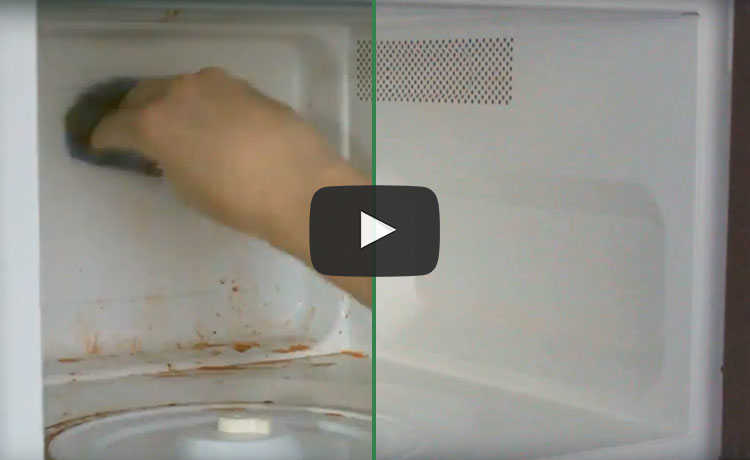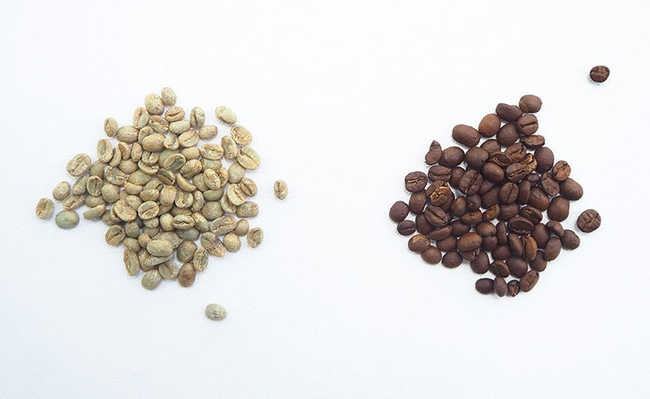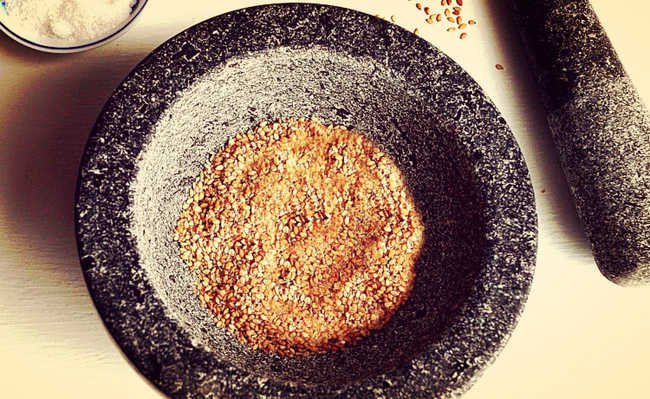Find out how to calculate menstruation periods
Knowing how to calculate menstruation periods can be important for those seeking a pregnancy

Edited and resized image of Ava Sol is available on Unsplash
Knowing how to calculate menstruation periods is important for those who want to avoid pregnancy and for those looking to conceive a baby. Thus, it is necessary to pay attention to the average duration of the menstrual cycle itself.
The fertile period is the phase of the menstrual cycle when a woman's body of childbearing age can fertilize a sperm. In other words, it is the period when she is biologically capable of getting pregnant. It starts three days before the 14th day of a normal 28-day cycle (counting from the first day of menstruation) and ends three days after that date, repeating itself every month, until the onset of menopause.
- Menopause: symptoms, effects and causes
Depending on each person's body, the cycle can last more or less than 28 days, and be irregular. If you menstruated on March 20th and, in the following cycle of the same year, on April 16th, for example, it means that your cycle had a duration of 28 days. If this time span varies widely from month to month, you may have an irregular cycle.
Calculating menstruation periods in the irregular cycle is not safe before one year of observation. To know when is the fertile period in case of irregular cycle, it is necessary to note the cycle length every month of the year and subtract 18 days from the shorter cycle and 11 days from the longer cycle, always counting the first day of menstruation.
If your shortest cycle was 20 days and the longest cycle was 34 days, for example, you will do the following calculation: 20 - 18 = 2 and 34 - 11 = 23, that is, the fertile period will be between the 2nd and the 23rd day of the cycle, which is quite imprecise.
A safer way to know the fertile period in case of an irregular cycle for those seeking a pregnancy is to use the pharmacy ovulation test and be aware of signs of fertile period, such as mucus that looks like egg white and increased libido.
Calculating menstruation periods alone is not an effective method to prevent pregnancy, it should be used in conjunction with other contraceptive methods, such as condoms, for example.
The fertile period and the menstrual cycle
The fertile period is a natural process that most women of childbearing age go through. Every month, after going through puberty and before reaching menopause, a woman's body undergoes several biological changes. These changes occur through hormonal variation and are divided into four phases (menstrual, follicular, ovulatory and luteal), receiving the name of the menstrual cycle.
During each menstrual cycle, an egg is developed and released from the ovaries. The uterus builds up a lining called the endometrium, and if the egg does not fertilize a sperm (to start a pregnancy), the uterine lining is expelled during the menstrual period. Then the cycle starts again.
The main symptom of the fertile period is increased vaginal secretion, but there are others that appear when the egg is released from the ovary and reaches the fallopian tubes, being ready to fertilize the sperm and start the pregnancy.
When vaginal mucus becomes more fluid and transparent, sperm find it easier to reach the egg. The increase in body temperature is due to the effort the body makes to prepare for fertilization, and there is an increase in libido.
Phases of the menstrual cycle
menstrual phase
The menstrual phase is the first stage of the menstrual cycle. It is also considered the beginning of the menstrual period.
This phase begins when an egg from the previous cycle has not fertilized any sperm. Because the pregnancy didn't occur, the levels of the hormones estrogen and progesterone drop.
The thick blood lining of the uterus, which would serve to support a pregnancy, is no longer needed, so it is expelled by uterine contractions and exits through the vagina. During the menstrual period, a combination of blood, mucus and tissue from the uterus is expelled.
This period is usually accompanied by symptoms such as:
- Cramps;
- Swelling and pain in the breasts;
- Abdominal swelling;
- Mood swings;
- Irritability;
- Headaches;
- Tiredness;
- Low back pain (low back pain).
On average, women are in the menstrual phase for between three and seven days. Some have longer menstrual periods than others.
follicular phase
The follicular phase starts on the first day of the period (therefore there is some overlap with the menstrual phase) and ends when the ovulatory period arrives.
This phase begins when the hypothalamus sends a signal to the pituitary gland to release follicle-stimulating hormone (FSH). This hormone stimulates the ovaries to produce about five to 20 small sacs called follicles. Each follicle contains an immature egg.
Only the healthiest egg will eventually mature. On rare occasions, a woman can have two mature eggs. The rest of the follicles will be reabsorbed by the body.
The maturing follicle triggers a surge of estrogen that thickens the lining of the uterus. This creates a nutrient-rich environment for an embryo to grow.
The average follicular phase lasts about 16 days. It can vary from 11 to 27 days, depending on the cycle and has a slightly pasty vaginal mucus, without much consistency and elasticity.
ovulatory phase
The increase in estrogen levels during the follicular phase triggers the pituitary gland to release luteinizing hormone (LH). This is what starts the ovulation process.
Ovulation occurs when the ovary releases a mature egg. The egg travels through the fallopian tubes towards the uterus to fertilize the sperm.
The ovulation phase is the only time in the entire cycle when a woman is fertile. It lasts around just 24 hours and presents symptoms such as:
- slight increase in basal body temperature (around 0.3 to 0.8°C), which can be measured with a thermometer as soon as you wake up;
- transparent vaginal mucus similar to egg whites;
- increased libido and appetite;
- lower abdominal pain
- irritation and emotional instability
Ovulation happens around the 14th day if the woman cycles for 28 days - right in the middle of the menstrual cycle. Lasts about 24 hours. After a day, the egg will die or dissolve if it is not fertilized. Because there is a greater chance of conception around this date, it is counted as a fertile period three days before and three days after the 14th day of a normal 28-day cycle.
luteal phase
After the follicle releases the egg, it becomes the corpus luteum. This structure releases hormones, mainly progesterone and some estrogen. Increased hormones keep the uterine lining thick and ready for a fertilized egg to implant.
If a woman becomes pregnant, the body will produce human chorionic gonadotropin (hCG). This hormone is easily detected in a pregnancy test and confirms the diagnosis. It helps maintain the corpus luteum and keeps the uterine lining thick.
If the woman does not become pregnant, the corpus luteum will shrink and be reabsorbed. This leads to decreased levels of estrogen and progesterone, which causes the menstrual period to start. The lining of the uterus is released in the form of menstruation during the menstrual period.
During this phase, if the woman does not become pregnant, she may experience symptoms of premenstrual syndrome (PMS). These include:
- Swelling;
- Breast swelling, pain or tenderness;
- Mood change;
- Headache;
- Weight gain;
- Changes in sexual desire;
- Cravings caused by food or aromas;
- Difficulty sleeping.
To learn more about PMS, check out the article: "What does PMS mean, what are its symptoms and treatment".
The luteal phase lasts 11 to 17 days. The average duration is 14 days and releases a pasty white vaginal mucus, similar to an ointment (this is different from a vaginal discharge).
- Cinnamon: benefits and how to make cinnamon tea
common problems
Each woman's fertile period is different. Some women menstruate every 28 days every month. Others have a more irregular fertile period.
The fertile period can also change during certain moments of life, and it can become more irregular as you approach menopause, for example.
One way to find out if you are having a problem with your fertile period is to record and analyze your menstrual cycles. Write down when they start and end. Also record any changes in sensation and the number of days you bled and the appearance of your vaginal mucus.
Any of these factors can change the fertile period:
- Contraceptive pill
- Polycystic Ovary Syndrome (PCOS): hormonal imbalance that prevents an egg from developing normally in the ovaries, causing irregular menstrual cycles;
- Uterine fibroids: non-cancerous, can make periods longer and more difficult to apply than usual;
- Eating disorders: anorexia, bulimia and other eating disorders can disrupt the fertile period and stop menstruation.
Some signs that there may be a problem with the fertile period:
- You skipped cycles or your periods stopped completely;
- Your period is irregular;
- You bleed for more than seven days;
- Your menstrual cycle is less than 21 days or more than 35 days apart;
If you have these or other problems with your fertile period or cycle, get medical help. If you are looking to get pregnant, take a look at the article: "How to get pregnant: 16 natural tips", maybe it can help you.
Adapted from Healthline










